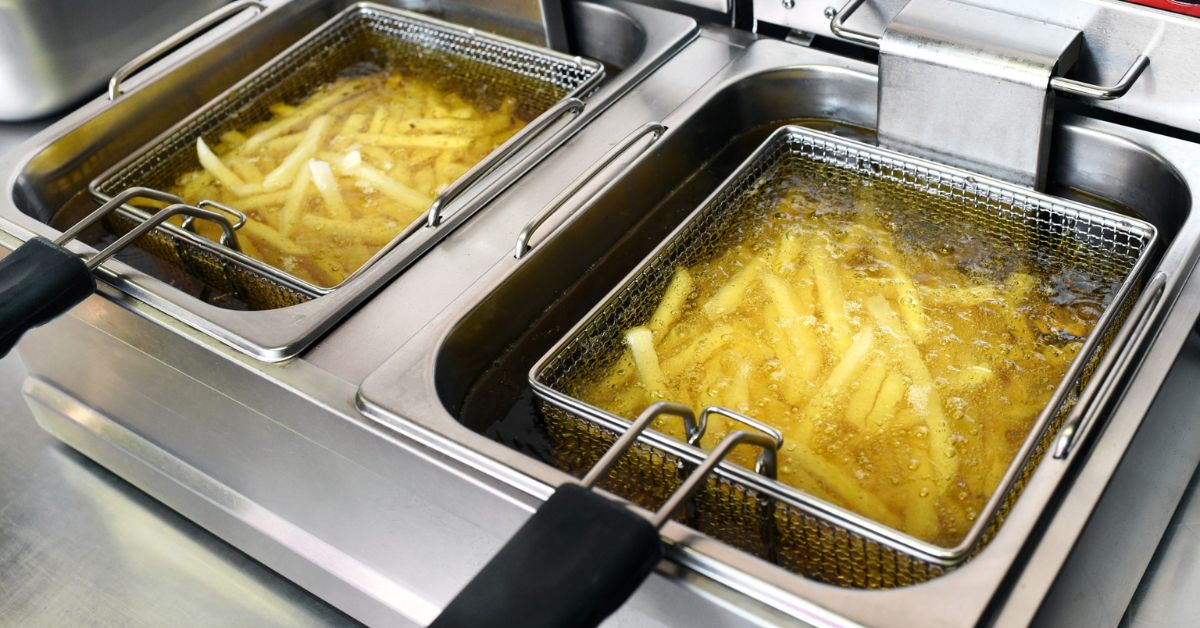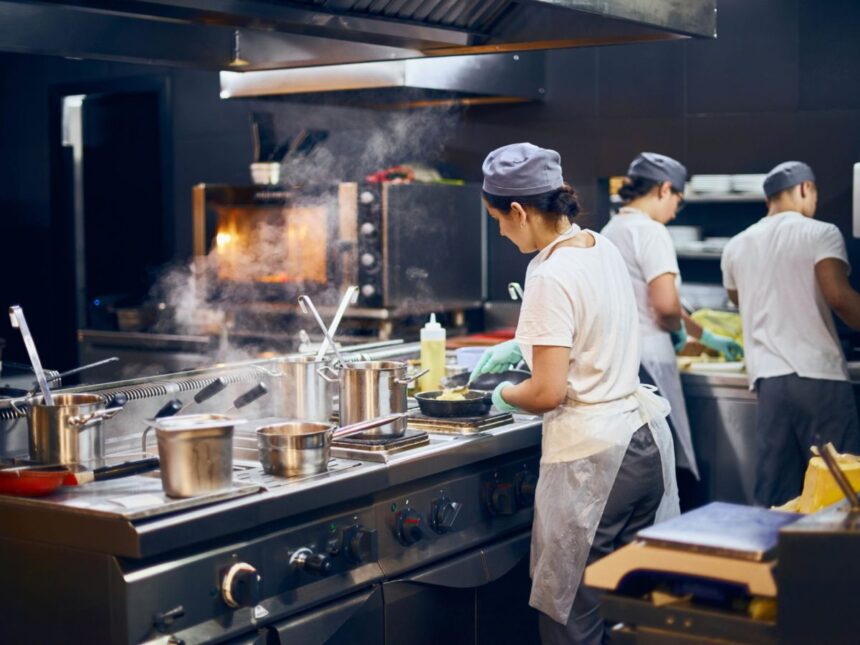Technology has revolutionized how businesses operate, and the commercial kitchen industry is no exception. Using advanced technology in commercial kitchens has led to increased efficiency, improved safety, and reduced costs. This article examines the impact of technology on commercial kitchen operations, specifically focusing on the use of chips fryers.
The Emergence of Technology in Commercial Kitchens Operations:
The first technology to be introduced in commercial kitchen was the electric stove, which replaced gas stoves. This innovation made cooking faster and more efficient, reducing the time required to prepare food. The use of technology in commercial kitchen continued to evolve, leading to the development of sophisticated kitchen equipment.
Chips Fryers:
Chips fryers are an essential piece of equipment in commercial kitchens. They fry various food items, including French fries, chicken, and fish. The introduction of it in commercial kitchens has revolutionized how food is prepared, making it easier and faster to cook large quantities of food.

Impact of Technology on Chips Fryers:
The use of technology in chips fryers has had a significant impact on commercial kitchen operations. The following are some of the ways technology has transformed the use of chips fryers in commercial kitchen:
1. Improved Efficiency:
The use of technology in fryers has improved efficiency in commercial kitchen. Modern fryers are designed to cook food faster and more evenly, reducing the time required to prepare food. They also have automatic temperature controls, ensuring that food is cooked at the right temperature, reducing the risk of overcooking or undercooking.
2. Increased Safety:
Technology has also led to increased safety in commercial kitchens. Modern chips fryers have safety features that prevent accidents, such as automatic shut-off systems that turn off the fryer if it overheats or the oil level is too low. This reduces the risk of fires and injuries in commercial kitchen.
3. Cost Savings:
The use of technology in fryers has also led to cost savings in commercial kitchens. Modern chips fryers are more energy-efficient, reducing energy costs. They also have longer lifespans, reducing the need for frequent replacements, which saves money in the long run.
4. Improved Quality of Food:
Technology has also improved the quality of food cooked in chips fryers. Modern chips fryers are designed to cook food more evenly, reducing the risk of overcooking or undercooking. They also have filters that remove impurities from the oil, ensuring that the food cooked is healthier and tastier.
The Impact of Technology on Commercial Kitchen Operations:
The use of technology in commercial kitchens has transformed the way food is prepared and served. The following are some of the ways technology has impacted commercial kitchen operations:
1. Improved Efficiency:
Technology has improved efficiency in commercial kitchens. Advanced kitchen equipment, such as chips fryers, has reduced the time required to prepare food, allowing commercial kitchen to serve more customers in less time. This has increased revenue for businesses and improved customer satisfaction.
2. Increased Safety:
Technology has also led to increased safety in commercial kitchens. Advanced kitchen equipment, such as chips fryers, have safety features that prevent accidents, reducing the risk of injuries and fires in commercial kitchen.
3. Cost Savings:
Technology has also led to cost savings in commercial kitchens. Advanced kitchen equipment are more energy-efficient, reducing energy costs. They also have longer lifespans, reducing the need for frequent replacements, and saving businesses money in the long run.
4. Improved Quality of Food:
Technology has also improved the quality of food served in commercial kitchens. Advanced kitchen equipment, such as chips fryers, is designed to cook food more evenly and consistently, resulting in better-tasting food. The use of technology in commercial kitchen has also enabled businesses to offer a wider variety of dishes and cuisines, expanding their customer base and increasing revenue.
5. Enhanced Customer Experience:
The use of technology in commercial kitchens has enhanced the customer experience. Advanced kitchen equipment has reduced wait times, enabling businesses to serve customers faster.
6. Data Collection and Analysis:
Technology has enabled businesses to collect and analyze data on their operations, allowing them to make data-driven decisions. Advanced kitchen equipment can collect data on cooking times, temperatures, and oil usage, providing valuable insights that businesses can use to optimize operations and reduce costs.
Challenges of Technology in Commercial Kitchen Operations:
While using technology in commercial kitchens has numerous benefits, it also presents some challenges. The following are some of the challenges businesses may face when adopting technology in their operations:
1. Cost:
Implementing technology in commercial kitchens can be expensive, especially for small businesses.
2. Maintenance:
Maintaining technology in commercial kitchen can be challenging. Advanced equipment requires regular maintenance to operate efficiently and safely.
3. Security:
The use of technology in commercial kitchen can pose security risks. Digital menu boards, mobile ordering, and online reservation systems may be vulnerable to cyber attacks, compromising customer data and damaging the business’s reputation.
